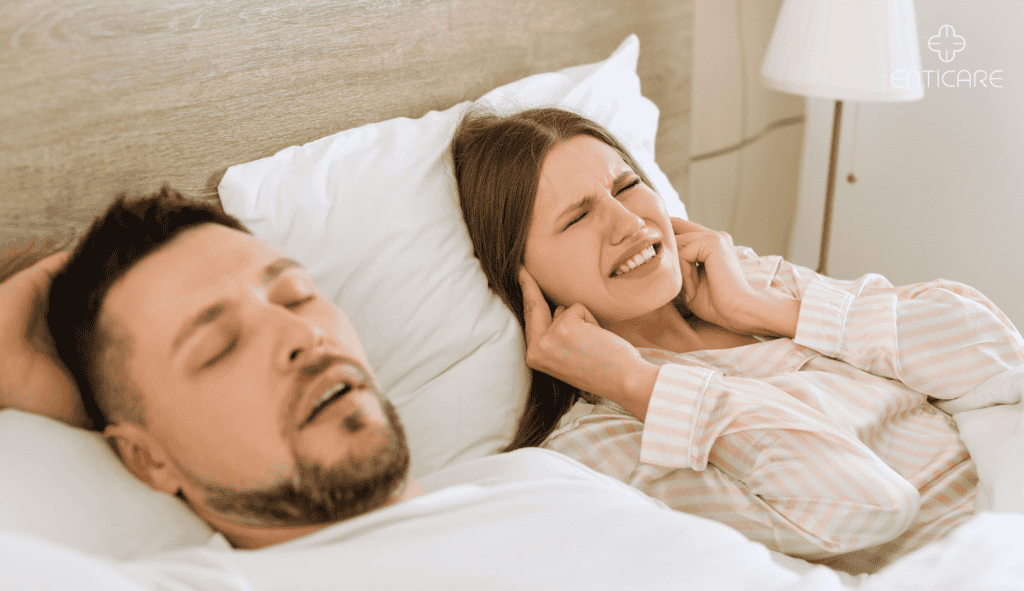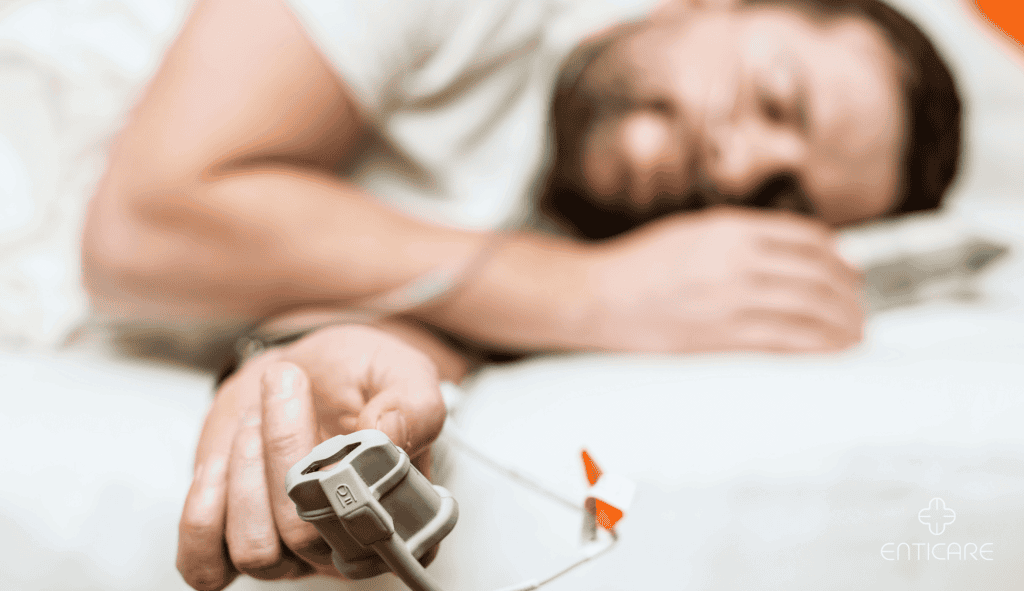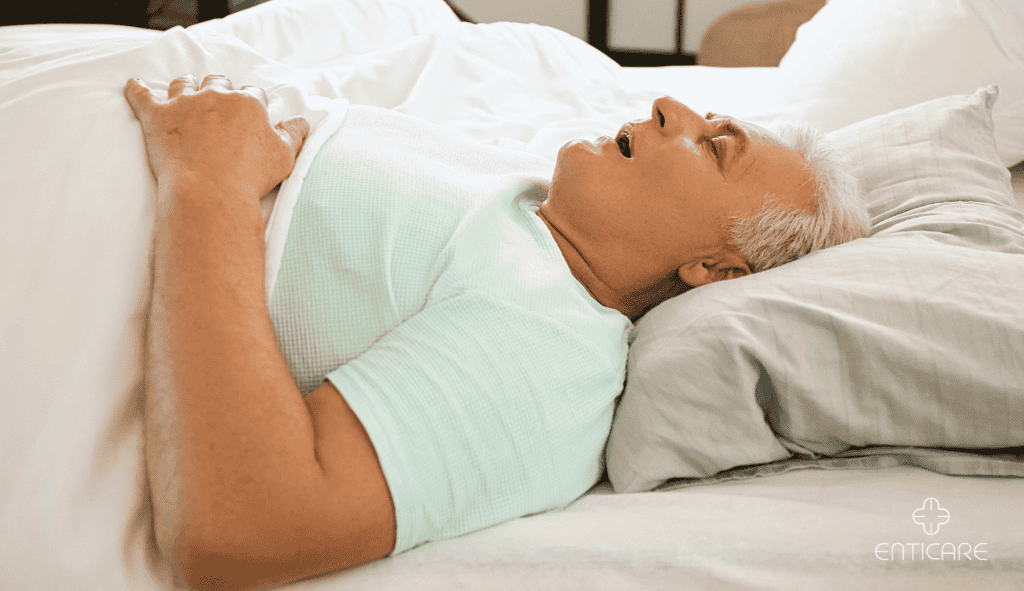Sleep apnea is a serious sleep disorder that can silently affect your life, leaving you tired, unhealthy, and unaware of the risks lurking in your sleep. Identifying potential indicators of obstructive sleep apnea (OSA) involves understanding various risk factors. Many people suffer from this condition without even knowing it. A sleep study can help diagnose sleep apnea. But how can you tell if you have sleep apnea? Taking a quick and easy quiz may reveal important clues. Below, we dive into the key aspects of sleep apnea, who is at risk, and how a sleep apnea quiz can help you discover if you need professional attention.

What Is Sleep Apnea and Why Should You Care?
Sleep Apnea: More Than Just Snoring
Snoring often gets dismissed as a harmless annoyance, but it could be the red flag of sleep apnea. While not everyone who snores has sleep apnea, nearly all sleep apnea sufferers snore. Sleep apnea disrupts the sleep cycle by causing your breathing to stop repeatedly during sleep, leading to frequent awakenings, even if you don’t remember them. This condition puts immense strain on your body, especially your heart and lungs, over time.
The Serious Health Risks
Untreated sleep apnea can trigger numerous health problems, including high blood pressure, heart disease, stroke, diabetes, and even accidents caused by daytime drowsiness. Knowing if you have this condition can save your life. Early diagnosis leads to proper treatment, which protects your health in the long run. Don’t let sleep apnea undermine your well-being when it’s treated.
The Sleep Apnea Quiz: Do You Have the Warning Signs?
Frequent Daytime Fatigue
Are you constantly tired, even after what you think is a full night’s sleep? Waking up unrefreshed despite hours in bed could be a major indicator of sleep apnea. Sleep apnea disrupts the sleep cycle, preventing you from reaching the deep, restorative stages of sleep that your body needs. If you’re nodding off during the day or fighting to stay awake while driving, working, or sitting still, it’s time to take a closer look at what’s happening during the night.
Loud, Chronic Snoring
Snoring might be common, but if it’s loud enough to disturb others, it’s time to take note. People with sleep apnea often snore heavily because their airways narrow or become blocked during sleep. This airway obstruction causes the airway to collapse, making airflow turbulent and leading to loud, frequent snoring. If your partner complains about your snoring or you wake up gasping for air, these are major red flags.
Waking Up Gasping or Choking
Another clear sign of sleep apnea is waking up suddenly, gasping, or choking for breath. Sleep apnea sufferers may experience blocked airways that stop breathing multiple times during the night. When breathing stops, oxygen levels drop, and your brain realizes there’s no oxygen coming in, forcing you awake just long enough to restore airflow. While you may fall back asleep immediately, your body is under significant stress every time this happens.

Who Is Most at Risk for Sleep Apnea?
Overweight or Obese Individuals
Being overweight significantly increases your risk of sleep apnea. Extra tissue around the neck and throat can block airways more easily. If you have a higher body mass index (BMI), particularly with fat around your upper body, you might be more prone to airway obstruction during sleep. Overweight individuals often experience fatigue due to disrupted sleep. Weight loss has been shown to alleviate symptoms in many sleep apnea patients.
Men vs. Women
Men, particularly those who are male and over the age of 40, are more likely to develop sleep apnea. This doesn’t mean women are immune; postmenopausal women and those with certain health conditions, like polycystic ovary syndrome (PCOS), may have a higher risk. While both genders can develop sleep apnea, societal underdiagnosis in women means they may not get evaluated as often.
Family History and Genetics
If someone in your family has sleep apnea, your chances of having it increase. Some anatomical factors—like a naturally thicker neck, narrow airway, or larger tongue—can be hereditary and contribute to the risk. If sleep apnea runs in your family, be vigilant about checking for symptoms, even if you feel healthy otherwise.
What Can You Do If You Suspect Sleep Apnea?
Take a Sleep Apnea Quiz
Taking a simple sleep apnea quiz can help you determine if you need professional evaluation. You’ll answer questions about your sleep patterns, snoring habits, daytime fatigue, and overall health. Based on your responses, the quiz will help you decide whether to seek further testing. Many online quizzes are easy to access and can be a useful first step in identifying potential sleep apnea.
Consult with a Sleep Specialist
After taking a quiz, if the results suggest you may have sleep apnea, consult a sleep specialist for a proper diagnosis. A sleep study, either in a sleep lab or at home, can provide accurate insights into your breathing patterns during sleep. Once diagnosed, your specialist will work with you to find the best treatment plan, whether it’s a CPAP machine, oral appliance, or lifestyle adjustments.
Lifestyle Changes to Improve Sleep
If you’re at risk for sleep apnea, certain lifestyle changes can reduce your symptoms. Losing weight, quitting smoking, and avoiding alcohol or sedatives before bed can improve airway function. Sleeping on your side rather than your back also helps keep airways open. While these changes won’t always eliminate sleep apnea, they can significantly lessen the severity of symptoms.
Take Control of Your Health Today
Sleep apnea can steal your health, energy, and happiness without you even realizing it. If you experience any of the warning signs—such as loud snoring, excessive daytime fatigue, or waking up gasping for air—don’t ignore them. Take a sleep apnea quiz and schedule an appointment with a sleep specialist. Early diagnosis and treatment can improve your quality of life, prevent serious health complications, and help you get the restful sleep your body craves.
Take action now and schedule an appointment with a sleep expert by visiting Enticare Sleep. For healthcare professionals looking to refer patients for specialized ENT care, Enticare provides a streamlined referral process.
For more information on sleep apnea, visit resources such as the American Sleep Apnea Association and learn how proper sleep care can improve your well-being.


